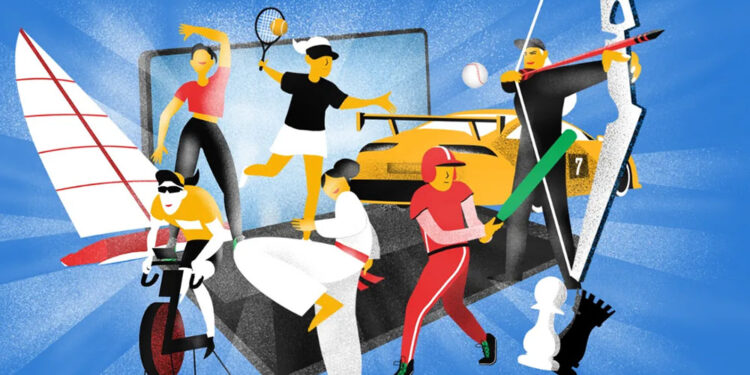The International Olympic Committee announced Wednesday the “Olympic Esports Series” a virtual competition that begins in March and will culminate with a live in-person event as part of the first-ever “Olympic Esports Week” from June 22-25 in Singapore at the Suntec Singapore Convention and Exhibition Centre.
The games selected as “esports” for this global virtual competition include archery (Tic Tac Bow), dance (Just Dance), Baseball (WBSC eBaseball Power Pros), chess (Chess.com), cycling (Zwift), motorsports (Gran Turismo), sailing (Virtual Regatta), tennis (Tennis Clash), and Taekwondo (virtual Taekwondo).
These titles were chosen by the IOC with the help of international federations, though no particular federation is listed in the announcement, which is likely a good thing, as the reaction to this announcement online has been met with a lot of criticism already—mostly due to the fact that the only recognizable titles are Sony’s Gran Turismo and Ubisoft’s Just Dance.
No professional esports games – even the titles you might expect including a football title from Konami or EA Sports, or even the popular Rocket League made the cut, apparently.
It’s not surprising that games such as League of Legends, Counter-Strike: Global Offensive, Valorant, Halo, Rainbow Six Siege, Call of Duty, PUBG and its mobile counterpart, and many other titles that contain different levels of violence and shooting didn’t make the cut, as the OIC has long been against games of this nature, and these games don’t have a real-world sports component to justify inclusion – a long held view of the IOC.
The reaction has been interesting on social media; people such as former TEO CEO Chris Hana (who now works for Kolex) wrote in a LinkedIn post that the community should could cut the IOC some slack, because it has to start somewhere and they obviously chose game titles that have a connection to real-world sports (as we noted earlier), but he also notes that the esports ecosystem doesn’t need validation of the IOC at this point, and what it does in the competitive gaming space should probably be ignored.
Much of the contention doesn’t get the point of the IOC using the term “esports” (something it hasn’t done until now) because it didn’t choose an actual esports titles, but Dr. Tobias Scholz, assistant professor at the University of Siegen and founding chairman of the Esports Research Network, told The Esports Advocate that his concerns go well beyond just the usage of words:
“The selection of games by the International Olympic Committee (IOC) suggests a preference for esports titles that have a real-world counterpart and are endorsed by a governing body. The IOC seeks esports that can be governed in a manner similar to traditional sports. While this approach is not necessarily reprehensible and understandable from their perspective.
“It could result in a division of the esports ecosystem into a sports-oriented branch, which is sanctioned by the IOC and its federations, and a traditional esports ecosystem, which is driven by publishers. It is worth noting, however, that the inclusion of archery and taekwondo in the selection indicates a focus on regulating the content of esports titles rather than banning those that contain violent elements. The Olympic Esports Series serves as a clear indication of the IOC’s vision for esports. It is also noteworthy that large publishers, particularly those with sports simulations in their portfolio, are notably absent from the selection.”
Editor’s note: Chris Hana is the former CEO of The Esports Observer, a company the author worked for for three years. This story was updated to clarify Hana’s thoughts on the relevance of the IOC as it relates to esports.
